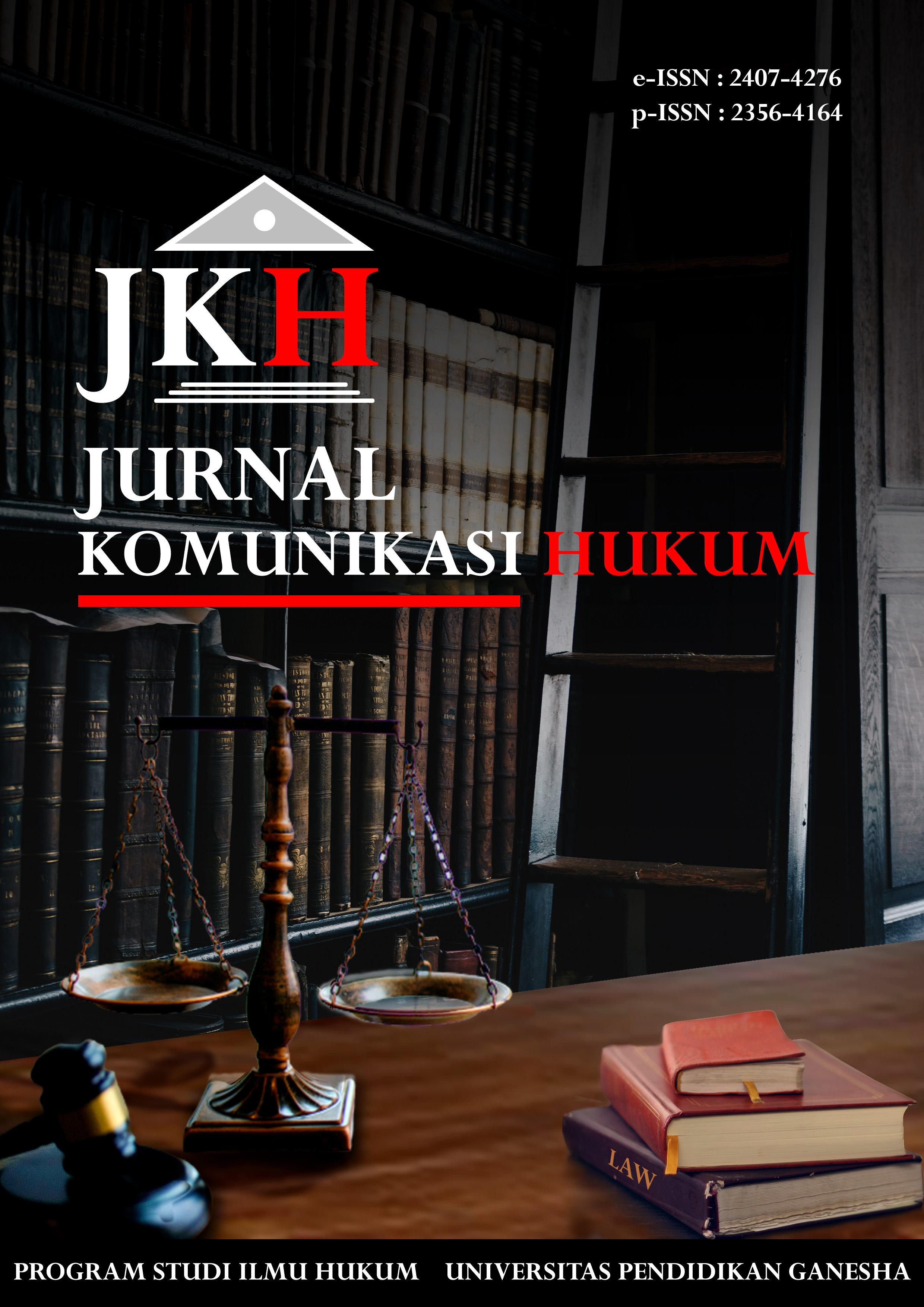Penyelesaian Tindak Pidana Pencurian Hewan Ternak Menurut Hukum Adat Masyarakat Kecamatan Alas Kota Madya Manufahi
DOI:
https://doi.org/10.23887/jkh.v7i1.31465Keywords:
Livestock Theft, Customary LawAbstract
Theft is related to the possession of other property without the permission of the owner, with various ways and modes of operation. The role of customary law in the settlement of criminal theft (livestock) is the implementation of state duties in combating criminal acts. This is a manifestation of Article 2 paragraph (3) and Article 59 paragraph (4) of the RDTL Constitution. The application of customary law in the Alas District (Posto Administrativo) is a positive response to the high desire of the community about a peaceful and serene life in their environment. Therefore, the term law enforcement is closely related to the idea of the rule of law or legal principles as the supreme power in the rule of law and democracy in East Timor.
Downloads
Published
How to Cite
Issue
Section
License
Authors who publish with this journal agree to the following terms:- Authors retain copyright and grant the journal right of first publication with the work simultaneously licensed under a Creative Commons Attribution License that allows others to share the work with an acknowledgement of the work's authorship and initial publication in this journal.
- Authors are able to enter into separate, additional contractual arrangements for the non-exclusive distribution of the journal's published version of the work (e.g., post it to an institutional repository or publish it in a book), with an acknowledgement of its initial publication in this journal.
- Authors are permitted and encouraged to post their work online (e.g., in institutional repositories or on their website) prior to and during the submission process, as it can lead to productive exchanges, as well as earlier and greater citation of published work (See The Effect of Open Access).
Authors who publish with this journal agree to the following terms:
- Authors retain copyright and grant the journal right of first publication, with the work [SPECIFY PERIOD OF TIME] after publication simultaneously licensed under aCreative Commons Attribution License that allows others to share the work with an acknowledgement of the work's authorship and initial publication in this journal.
- Authors are able to enter into separate, additional contractual arrangements for the non-exclusive distribution of the journal's published version of the work (e.g., post it to an institutional repository or publish it in a book), with an acknowledgement of its initial publication in this journal.
- Authors are permitted and encouraged to post their work online (e.g., in institutional repositories or on their website) prior to and during the submission process, as it can lead to productive exchanges, as well as earlier and greater citation of published work (See The Effect of Open Access).












